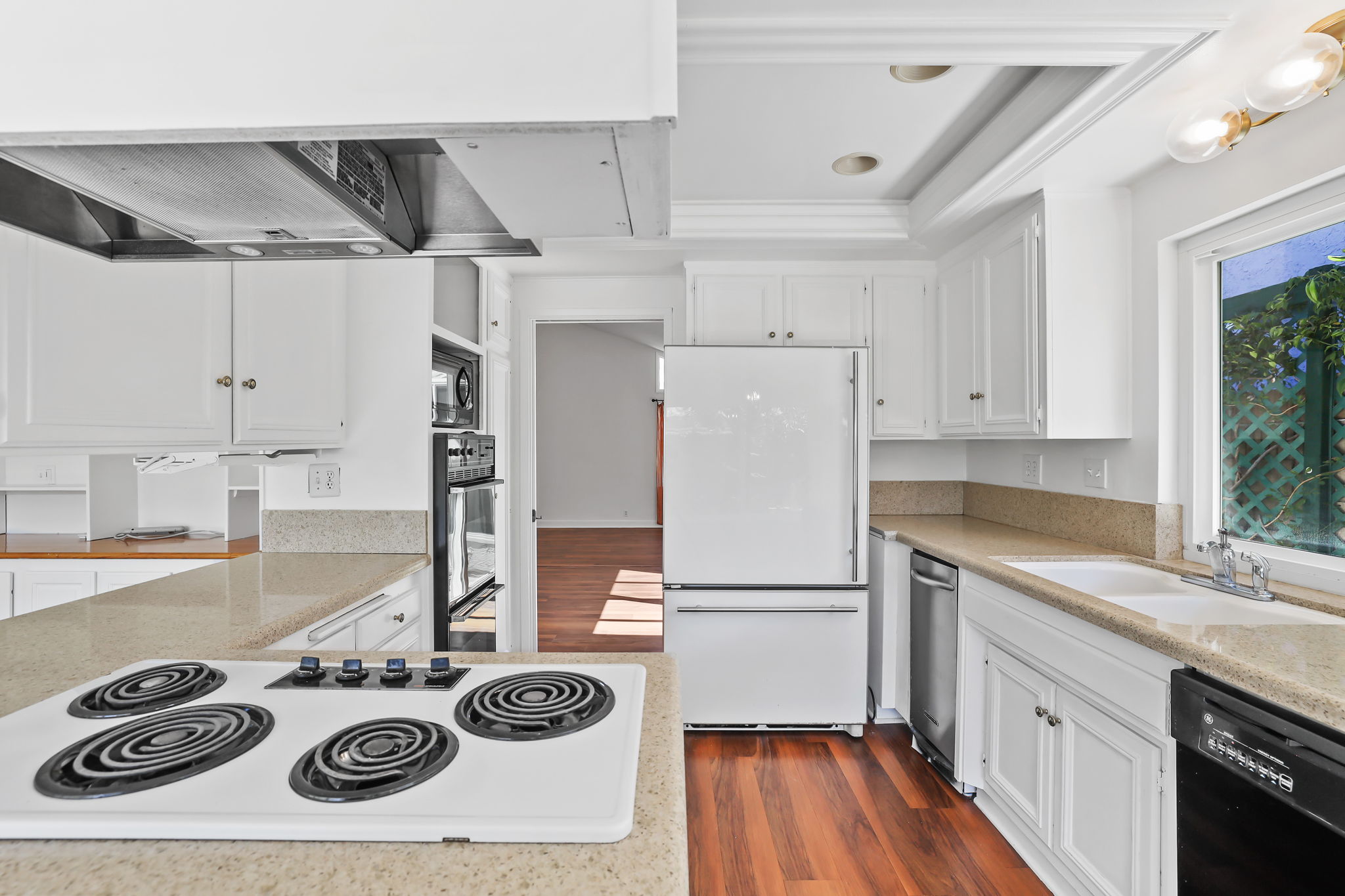AB 628: What Orange County Landlords Need to Know About the New Fridge Requirement
California’s housing rules changed in 2025. Assembly Bill 628 (AB 628) adds refrigerators — and stoves — to the list of things a rental unit must include to be considered “tenantable.” If you own or manage rental property in Orange County (Huntington Beach, Santa Ana, Irvine, Anaheim, Costa Mesa, etc.), AB 628 affects your move-in checklist, leases, maintenance budgets, and tenant communications. Here’s a practical, friendly guide that tells you what the law requires, who’s exempt, and concrete next steps to stay compliant.
Quick summary (the must-know facts)
Effective date: AB 628’s appliance requirements take effect January 1, 2026. Los Angeles Times
What’s required: Landlords must provide a working refrigerator (capable of safely storing food) and a working stove (capable of safely generating heat for cooking) for qualifying residential rental units.
Tenant-provided option: A tenant may agree in writing at lease signing to provide and maintain their own refrigerator, but that must be mutually agreed and documented.
Recall rule: If an appliance is subject to manufacturer or public-entity recall, the landlord must repair or replace it within 30 days of receiving notice.
Exceptions: AB 628 does not apply to certain housing types (permanent supportive housing, SROs, residential hotels, units in buildings with communal kitchens or assisted-living facilities, etc.). Check the statute for your property type.
Why AB 628 matters for Orange County landlords
Orange County has a diverse rental stock — older single-family homes, multifamily buildings, accessory dwelling units, and student housing — and the cost to retrofit or replace appliances can be significant. AB 628 changes both the legal baseline for habitability and the practical expectations of prospective tenants. Listing a unit without a stove or fridge will no longer be typical for new or renewed leases after the effective date, and leases or move-in checklists should reflect that reality.
From a marketing perspective, having appliances included can be a renting-point (advertise “stove & refrigerator included”), but from an operations perspective it increases replacement/repair responsibilities and budget line items.
What “working” means (practical interpretation)
AB 628 clarifies that:
A refrigerator must be capable of safely storing food (not simply present).
A stove must be capable of generating heat for cooking.
If an appliance fails to meet these conditions, the landlord must remedy the issue (repair or replace). For recalled appliances, the clock for repair/replacement is 30 days from notice. Document everything: tenant reports, service invoices, purchase receipts, and recall notices.
Who is exempt (check before assuming)
Not every rental falls under AB 628. Exemptions include:
Permanent supportive housing and certain supportive programs.
Single-room occupancy (SRO) units with shared kitchens.
Residential hotels and units in facilities with communal kitchens (e.g., some assisted living buildings).
If your property fits an exempt category, keep documentation proving that status to show compliance if ever questioned.
Lease drafting & move-in procedures — practical checklist
Update standard lease forms to state that a working stove and refrigerator are provided unless the tenant opts in to provide their own equipment in writing.
Add an appliance inventory & condition addendum: model, age, serial numbers, current condition, and any existing cosmetic defects. This protects both parties.
Create a clear repair policy that references the 30-day recall requirement and reasonable timelines for ordinary repairs.
Update advertising (“stove & refrigerator included”) to match reality — avoid misleading listings.
Budget plan: estimate replacement cost per unit and add to your capital reserve planning (fridges/stoves vary by size/efficiency).
Maintenance & budgeting tips for Orange County owners
Inventory age: Gather data now on the age and condition of existing appliances. If many units have old refrigerators, plan for phased replacement rather than emergency purchases.
Bulk purchasing: Consider volume discounts by negotiating with local appliance dealers or big-box suppliers (savings on purchase + delivery).
Energy efficiency: Replacing older fridges with ENERGY STAR models may increase upfront cost but lower utilities (if landlord pays) and appeal to tenants.
Service contracts: Explore appliance service contracts for faster turnaround times in OC — but read terms carefully (coverage, deductibles, response times).
Documentation: Keep receipts, warranties, and recall notices centralized (digital folder per unit) for compliance proof. AAOC
Common landlord questions — short answers
Can I require tenants to bring their own fridge? No — not as a condition of tenancy. A tenant may provide and maintain their own refrigerator only if both parties agree in writing at lease signing. LegiScan
Does AB 628 apply to existing leases? The law’s effective date is Jan 1, 2026; many analyses treat the rule as applicable to new, renewed, or amended leases after that date. Confirm applicability for specific lease types with counsel.
What if an appliance is recalled? Repair or replace within 30 days of notice. Keep proof of action.
Next steps for Orange County landlords
Audit your units now — list appliance models/ages per unit.
Update lease forms & listings to reflect the law and tenant option to provide appliances in writing.
Prepare a capital plan for replacements (start budgeting for 2026).
Talk to your property manager or attorney to align your policies with AB 628 and local OC ordinances. Here to help!
Communicate with tenants before the law takes effect — transparency builds trust and avoids surprises.
Final note
AB 628 represents a shift in California’s habitability standards — framing refrigerators and stoves as essentials rather than optional amenities. For Orange County landlords, the practical impact is predictable: update leases, budget for appliances, improve recordkeeping, and consider efficiency and vendor relationships to control costs. Taking these steps now will make the transition smoother when AB 628 takes effect on January 1, 2026. At Sail Properties we are well trained on the new laws. Please reach out if you have any questions.


